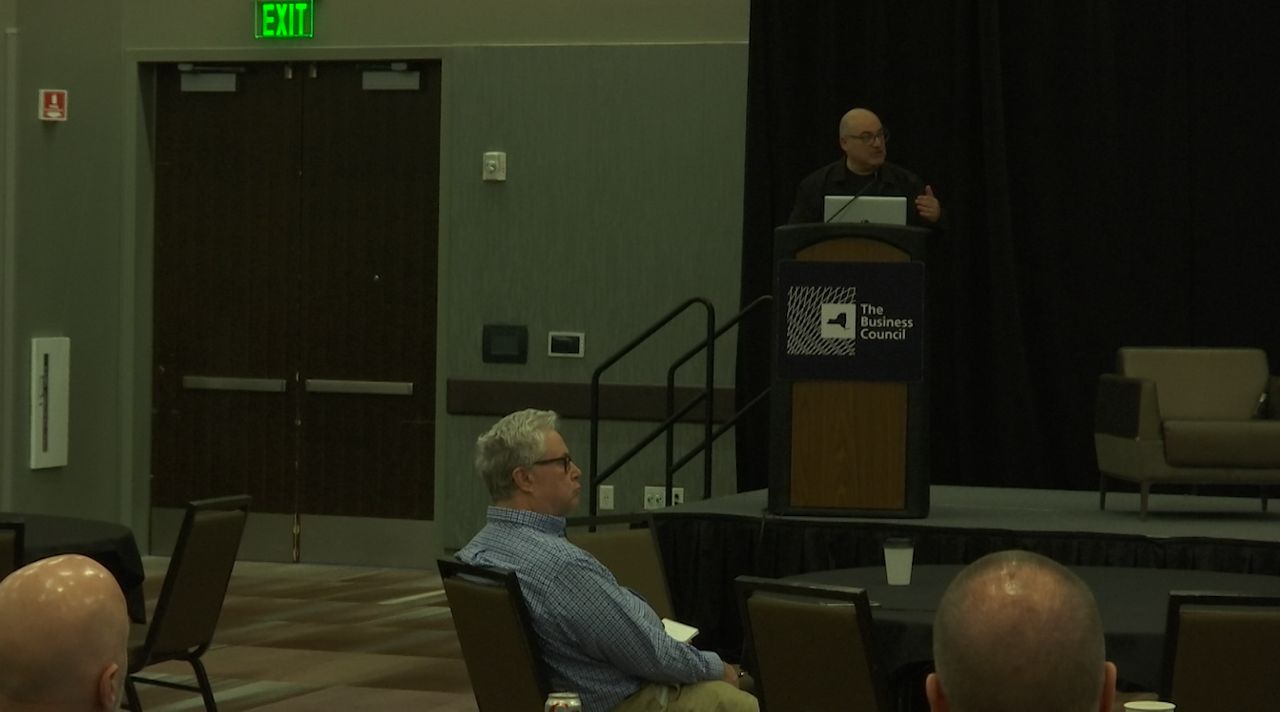Bussiness
AI experts gather in Albany to discuss business strategies

As New York state works to cement its place as a leader in artificial intelligence, experts in the field gathered in Albany for a discussion organized by the Business Council of New York State on how to best use the technology in the business world.
While a business-focused conference, when it comes to AI, it’s difficult not to get into political implications – whether it’s how the rise of artificial intelligence is impacting political communications, or how leaders are trying to shape the ways in which the technology will impact New York’s economy.
Keynote speaker Shelly Palmer, CEO of tech strategy firm the Palmer Group and Professor of Advanced Media in Residence at the Newhouse School at Syracuse University, emphasized that when it comes to AI, whether in government, the private sector, or day-to-day life, the key is staying ahead of the curve.
“AI is never going away. If you’re not on top of what this is, other people will be,” he said. “That’s the danger for everyone, politicians and people alike, if you’re not paying attention to this.”
New York is making strides to do that.
In the state budget are initiatives to create a state-of-the-art Artificial Intelligence Computing Center at the University at Buffalo to help New York stay ahead and attract business.
“I’ve said whoever dominates this next era of AI will dominate history and indeed the future,” Gov. Kathy Hochul said at a roundtable to discuss the Empire AI consortium this week.
Palmer said outside of the political sphere, dominating AI will be key for individuals, too.
“AI is not going to take your job,” he said. “People who know how to use AI better than you are going to take your job, so the only defense you have is to learn to work with an AI coworker to learn to work with these tools. They’re not scary, as long as you give yourself the opportunity to learn.”
Also of concern are the implications when it comes to politics and the spread of misinformation.
Palmer acknowledged that AI presents new and more complex challenges, but argued that people are routinely duped by less-sophisticated technology, citing a slowed down video of former House Speaker Nancy Pelosi that falsely claimed to show the California Democrat intoxicated.
Pulling information from a variety of sources with a variety of political bias, he emphasized that it’s up to users to learn about the technology’s limitations.
“You’re giving more credit to the technology than the technology deserves,” he said. “When people have a propensity to believe what they want to believe from the leaders they trust, you’re not going to change their minds with facts.”
Also in the budget is legislation to require disclosures on political communications that include deceptive media.
Hesitant to fully endorse such legislation, Palmer stressed that any regulation needs to be able to keep up with the fast-paced development of AI.
“If elected officials would take the time to learn about what this is, they could come up with laws that can keep pace that the technology is changing, then it would make sense,” he said. “I don’t think you can regulate today through the lens of today, looking at the present and predicting the future. Every morning I wake up and something new has happened in the business.”
That said, the effort to include those regulations in the state budget was a bipartisan one. State Senator Jake Ashby argued that there is still work to be done.
“While I’m pleased my bipartisan proposal to require transparency and disclosure regarding AI in campaign ads was adopted in the budget, I will continue to push for harsh financial penalties for campaigns and PACs that break the rules,” he said. “We need to make sure emerging technologies strengthen our democracy, not undermine it.”










